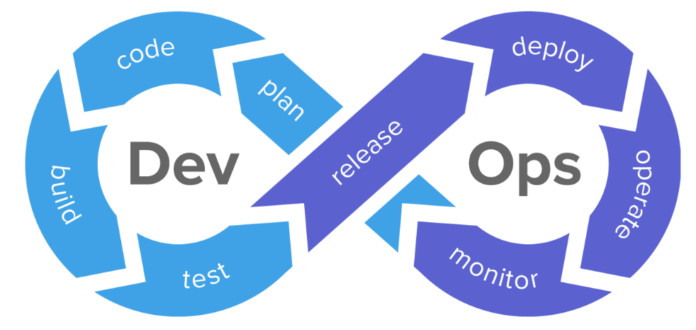DevOps is the progression of conventional application development and operations roles, prompted by the consumerization of all software and the need for agility in the corporate world. DevOps enables modern firms to remain competitive by continuously innovating via software.
DevOps is as much, if not more, about people and procedures as it is about technologies. Without changes to culture and processes, technology cannot allow DevOps success. One of the first issues of DevOps is to determine what the industry considers “DevOps” to imply. DevOps solicited input from industry professionals on what DevOps meant to them. This list is not intended to provide an all-inclusive, one-sentence description of DevOps. The objective is to demonstrate how diverse concepts are associated with DevOps and to have a better understanding of what DevOps is all about.
Several of the best DevOps professionals made this point quite evident when DevOps built this list. Nevertheless, various technologies may be required to support the people and processes that drive DevOps. DevOps solicited advice from industry professionals about a crucial technology necessary for DevOps.
DevOps technologies are intended to facilitate the following characteristics:
- Collaboration
- Breaking Down Silos
- Bringing Dev and Ops Together
- Agile Development
- Continuous Delivery
- Automation
- Among Others
This list encompasses performance management, monitoring, and analytics.
Application Performance Management
Other technologies are essential to the development of DevOps, but Application Performance Management stands out because it has become embedded as the primary method by which practitioners gather and communicate vital data.
While DevOps is most often associated with automation and continuous delivery/integration technologies, I think that the most critical tool that businesses must acquire and utilize to transition to DevOps is a monitoring system. What you cannot measure, you cannot improve. The key to finding bottlenecks that limit DevOps adoption is implementing important KPIs throughout the organization to assist in identifying the areas with the most significant room for improvement.
End User Experience Monitoring
The DevOps components that reverse the trend and begin providing production data to developers are increasingly deployed, but the procedures around these components are not. For instance, systems that expose engineering departments to the actual end-user experience in production would also need to become more visible to engineering departments. In addition, a number of these solutions also bring value to the business side. Therefore, a successful implementation in the user experience monitoring sector would please even more stakeholders.
Synthetic Monitoring
DevOps necessitates effective communication between Ops and Dev. Using application/API-driven synthetic monitoring will always provide a benchmark for success.
Infrastructure Management
Even if you are stuck on a desert island with a powerful and dependable Internet connection, you must still guarantee that your infrastructure is operating well and that your users are satisfied with their experience. A robust and adaptable Digital Infrastructure Management Platform is required to gather data from each tier of your stack, assess what’s normal and what’s not, and show the effect of abnormal behavior. This will help you to identify potential operational difficulties before they have a significant impact on your organization.
Incident Management
Organizations must recognize that tools are just a portion of the solution. The necessary people, procedures, and technologies must be in place to establish a DevOps environment. In the DevOps ecosystem, there are a variety of valuable tools. When determining which technologies best promote a DevOps mentality, you should prioritize productivity, repeatability, and security.
Analytics
DevOps requires technologies that go beyond continuous release and deployment. They need solutions that deliver ongoing analytics to assess and analyze application actions about business goals. While constant release and deployment are often emphasized, it is not always feasible in specific organizations owing to legal constraints. However, ongoing monitoring, tracking, and analytics are required. Utilize monitoring to collect infrastructure and application data and end-user experience data. Then, monitor and connect transactions to create a chronology of events. Create standard metrics that allow comparisons between the study’s technical and commercial goals.
Manager of Managers
The DevOps agile development approach extends to its tools, and we’ve seen a massive explosion of monitoring solutions. While each device tackles a unique issue, its spread has unwittingly led to silos of knowledge, domain-specific perspectives, and vast data volumes in multiple forms. As the number of applications and architectural complexity rise, an analytics-driven Manager of Managers is the essential tool for scaling production support. All of this operational event data must be ingested, and machine learning must be used to automate noise reduction and alarm correlation. This provides DevOps Services teams with early notice of developing problems, improved cooperation, and insight into the underlying cause, decreasing the impact of production outages and incidents.



